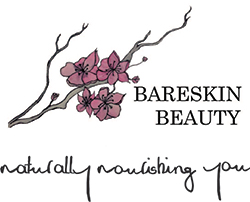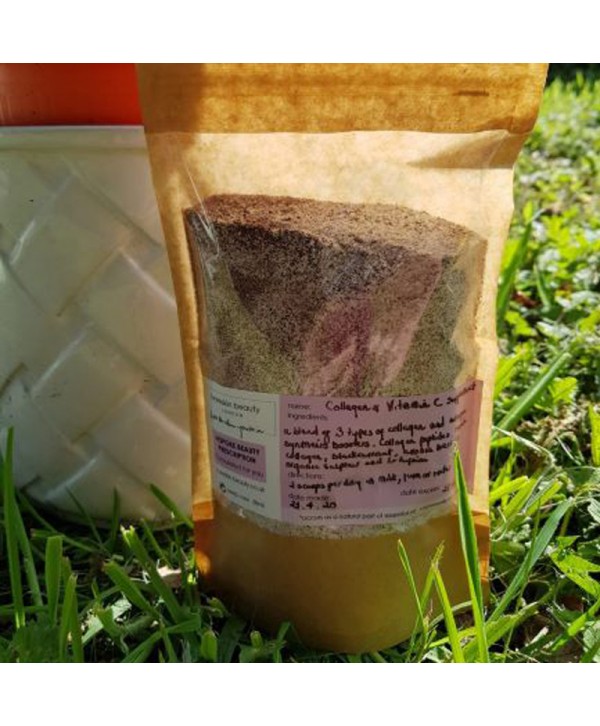COLLAGEN
Collagen is the protein building block of the skin. It makes the skin bouncy, plump and youthful. Collagen forms a mesh like bond to hold it firm and stop it from sagging and losing its structural integrity. Collagen are spiral shaped proteins manufactured by special cells called fibroblasts. We need to support these fibroblasts to produce more collagen in order to increase the structural integrity of the skin we do this through diet, lifestyle and supplementation.
Sugar (even natural and fruit sugars) once in the bloodstream sugar molecules attach collagen proteins causing them to stiffen and stopping them from working properly and therefore affecting their structural integrity and their elasticity.
Vitamin C and antioxidants play a key role in supporting collagen synthesis in the skin. My favourite sources are lemon, lime, rosehip, acerola, blackberries, papaya, bell peppers, broccoli, blueberries, watercress and parsley. In order to boost collagen we need the co factors, these are selenium, silica, biotin, magnesium, vitamin C, copper, and vitamin A and the full spectrum of amino acids, the most important being proline, lysine and glycine.
Collagen is the protein that gives skin its structure, suppleness and stretch. There are many types of collagen, but our body mainly consists of type 1, 2, and 3. As we age, we produce less collagen in our dermis every year and this can be accelerated by the food we eat and the lifestyle we adopt.
Silica and vitamin C play an integral role in the formulation of collagen. Collagen is a major structural protein, essential for the maintenance of healthy supple skin. Collagen supports healthy and strong connective tissue to help maintain skin integrity and appearance.
- Eating collagen-rich foods or foods that boost collagen production may also help create the building blocks (amino acids) you need for your skin goals. "There are three amino acids important for collagen synthesis: proline, lysine, and glycine.
- Bone broth – is essentially cooked collagen and also great for preventing inflammation. Foods like bone broth contain a bioavailable form of collagen your body can use right away, making it arguably superior to collagen supplements
- Dark leafy greens – protect against free radicals that destroy collagen. Some studies have shown that consuming chlorophyll increases the precursor to collagen in the skin
- Red vegetables – the lycopene in tomatoes, red beets and red peppers protect against sun damage and boost collagen as well
- Berries – fight free radicals and boost collagen
- Omega 3’s – the fatty acids in salmon, tuna, mackerel and even grass-fed beef help protect the membranes around skin cells, keeping them plump
- Orange produce – carrots and sweet potatoes are great sources of edible vitamin A
- Garlic – contains lipoic acid and taurine, which both help to rebuild collagen. Garlic is high in sulphur, which is a trace mineral that helps synthesise and prevent the breakdown of collagen.
Collagen Cofactors - what we need to build collagen at the cellular level.
Specific Precursors
Collagen is comprised of and formed from the amino acids proline and lysine. Lysine is an essential amino acid and the body relies on adequate dietary intake for its involvement in the synthesis of connective tissues. Proline is well-known for its involvement in the triple helix of collagen—it is regularly spaced with glycine in the amino acid sequence of collagen fibre which together comprise about 50% of total collagen sequencing. Proline contributes to not only collagen formation but muscle, tendons and skin. Lysine helps support the linking and stabilisation of collagen and contributes to the collagen matrix formation of veins, arteries and capillaries. During procollagen synthesis, both proline and lysine are hydroxylated to hydroxyproline and hydroxylysine, a reaction requiring vitamin C as a cofactor.
Inadequate levels of vitamin C can impact this reaction, resulting in incomplete formation of the helical structure, which leads to a delicate and easily destroyed structure. Vitamin C is combined with two amino acids—lysine and proline—to form procollagen. Procollagen is then used to manufacture one of several types of collagen found in different tissues throughout the body.
Targeted Cofactors
Zinc is an essential trace mineral that supports DNA synthesis, cell division, cell membrane structure, immune function and protein synthesis. Requirements are highest when the body's repair system is most active. MSM is responsible for the flexible disulfide bonds between cells, including those that make up connective tissue and the skin. It blocks undesirable chemical and physical cross-linking of collagen and preserves connective tissue pliancy, which is crucial for supporting healthy collagen.
MSM has been shown to significantly increase plasma glutathione levels, an additional benefit in maintaining collagen's defensive mechanisms against oxidative stress. Multiple clinical studies also show that MSM, in combination with other joint health ingredients, supports tendon and joint health.
Manganese assists the growth and development of normal bone and the synthesis of cartilage. Manganese is also a structural component of antioxidant enzymes and aids in amino acid production.
During the tissue synthesis process, which requires an increased production of collagen, manganese is required for the activation of prolidase, an enzyme that functions to provide the amino acid proline, for collagen formation in human skin cells. Nutritional co-factors required for tissue regeneration include zinc, vitamin C and amino acids. Inadequacy of these nutrients impacts endogenous collagen production and connective tissue synthesis.
Our Collagen & Vitamin C Supplement is a blend of 3 types of collagen and collagen synthesis boosters.
Ingredients
Collagen Peptides, Marine Collagen, Blackcurrant Aronia, Organic Sulphur, L-Lysine
Directions
Add 5ml to water or juice. Can take up to 10ml daily.


